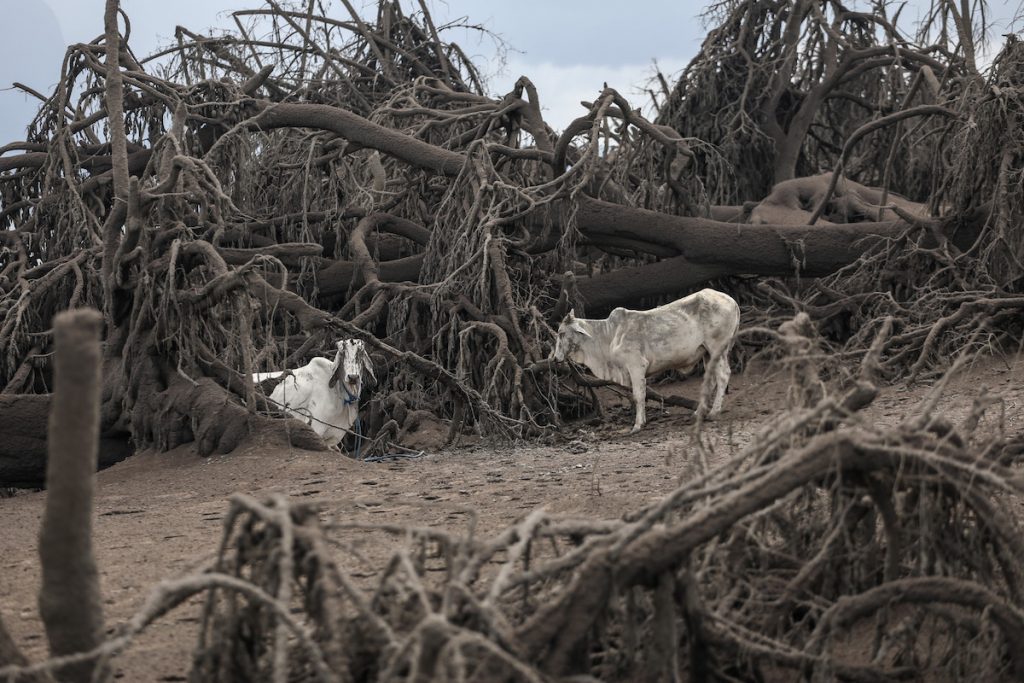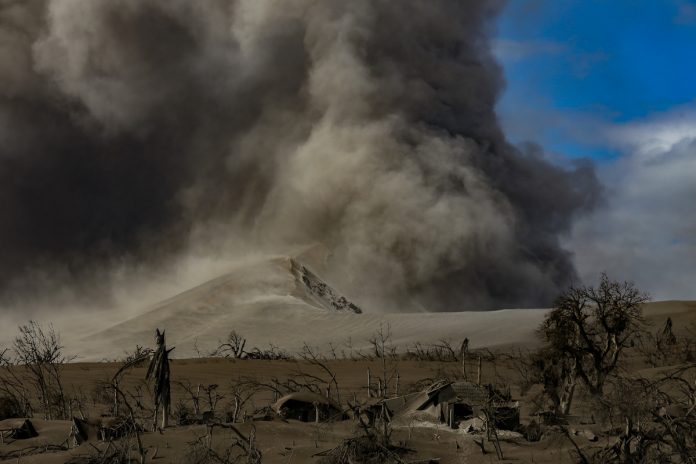It was a clear Sunday afternoon in January when nature once again displayed its latent vexations, the power and magnificence of its reconstituting dynamics, on a scale of cosmic proportions.
As always, we were unsuspecting, frivolously secure in its apparent stability; and extremely disturbed, all because of the folly of our anthropocentric thinking.
When Taal vomited ash on that fateful day, the entire area of the Philippines’ southern Luzon region was awakened from this frivolous stupor.
Many were still savoring some left-over holidays from the long Christmas vacation that ended more than ten days earlier.
What only moments before was a sunny, warm, and relaxing scene before the majestic lake, long reputed to be the second most active volcano in the Philippines, the Tagaytay paradise suddenly turned into “ground-zero,” filled with the terror of “zero visibility,” and the anxiety of “absolute uncertainty.”
Thrust, suddenly and helplessly, into the reality of imminent death, the next few hours turned into a desperate race to escape from “hell.”
For the poor who lived off the industry of paying to see and take selfies with an active volcano, the situation was much more horrifying.
They were quickly and forcibly evacuated with their usual hesitation to leave everything behind — it is not unusual for any person at the fringes of poverty to compromise their own safety, rather than abandon their only means of livelihood, for they have been living precariously anyway for most of their lives.
For their more affluent neighbors, there were convenient options: Either they started to try to reach safer ground, or to instinctively take out their smartphones and to record the event for their next blog.
For the non-residents, most immediately chose to flee their hotels, for they cannot afford to lose their precious lives, being lived more securely somewhere else.
In times of disaster, it is interesting to see different people instinctively conjuring different interpretations of what it means to have a “meaningful death.”
When it may have been quite clear that a real apocalypse was imminent, almost everyone scampered to get out first.
So began the mad rush, the ensuing chaos, amidst the darkening of the heavens. So floated the surrounding gloom, evoking despair over better tomorrows. So fell the ash and rain, mixed with the tears of relinquishing beloved possessions to fate. So wrought the havoc of human traffic squeezing their way out of Taal’s artificial Eden.
The following dawn, Taal burst in anger, and news stations were ablaze with images of the smoldering crater, the rising ash-cloud touching zenith, and the majestic display of lightning’s effervescence.
However, many questions were raised and someone else had to be blamed for all this unpreparedness. In television commentaries, fear and faith were reawakened.

But it is the same tragedy unfolding anew. Perhaps for us humans, it was another tragedy we had to face in paying the price for living in our man-made nirvana. But for nature, it was just another hiccup.
One of my professors in theology gave to our class a remarkable philosophical insight into the reality of our volatile geology — what we feel and believe to be natural cataclysmic events that evokes questions on whether or not God really loves us, are actually ways in which we are reminded that the world he gave us, is ultimately a living and breathing Earth.
It is an irony to think that deluges, conflagrations, quakes, and volcanic eruptions — those events that we most often regard as “life-threatening” to civilization as we know it — are manifestations of a planet that is able to sustain life itself.
We therefore have to learn to live with an Earth that has the power to create and destroy, precisely because it is the only home that can nurture us and cradle us in its bosom. A planet that cannot endure the forces to maintain that delicate balance between tranquil dormancy and violent movement through occasional yawns, hiccups, and spittles, is a dead planet.
In retrospect, it is thus a funny prayer to beseech God, that quakes, floods, or eruptions should not be permitted — for our sake. We pray in that manner because of the consciousness that such disasters disrupt the way we choose to live, while comfortably forgetting that the nature around us, has its own way. We have to live with that way, and we can never choose to live in spite of it, or detached from it.
The Taal eruption, like any other similar event is always a reminder of our absurd anthropocentrism. We are not at the center of the universe, as if the cosmos serves as a backdrop for our achievements. No matter how ingenuous we can become, we may never come to the point in which we would have any substantial control over its elements.
We need this “holy uncertainty” because God would wish that the path to grace and redemption will always remain open. Certainty closes our eyes to the Spirit, because predictability gives us the pride that we can know what God thinks before he does.
Uncertainty is therefore the key to an unwavering faith, an expectant hope and a joyful love, while certainty leads to overconfidence, domination, and abuse. At the heart of our own evil, is the fallacious assessment of our hyper-inflated selves.
So, next time when we think we can treat nature with all the ornaments befitting our prized possessions, with all the certainties that we think we can order into the things we control, and with a religion that gives us the superficial assurance that we are “jewels” in the eyes of a Creator whose creation is totally placed at our disposal, then we will be mistaken and justly terrified at the wrath and devastation that it can unleash in our midst.
From time to time, we do have to fall victim to the foolishness of our self-centeredness, and to begin to realize the truth of our mysterious kinship with Brother Volcano, Sister Tectonic Plates, Brother Oceans and Sister Climate.
Brother Jess Matias is a professed brother of the Secular Franciscan Order. He serves as minister of the St. Pio of Pietrelcina Fraternity at St. Francis of Assisi Parish in Mandaluyong City, coordinator of the Padre Pio Prayer Groups of the Capuchins in the Philippines, and prison counselor and catechist for the Bureau of Jail Management and Penology.
The views expressed in this article are the opinions of the author and do not necessarily reflect the editorial stance of LiCAS.news.









